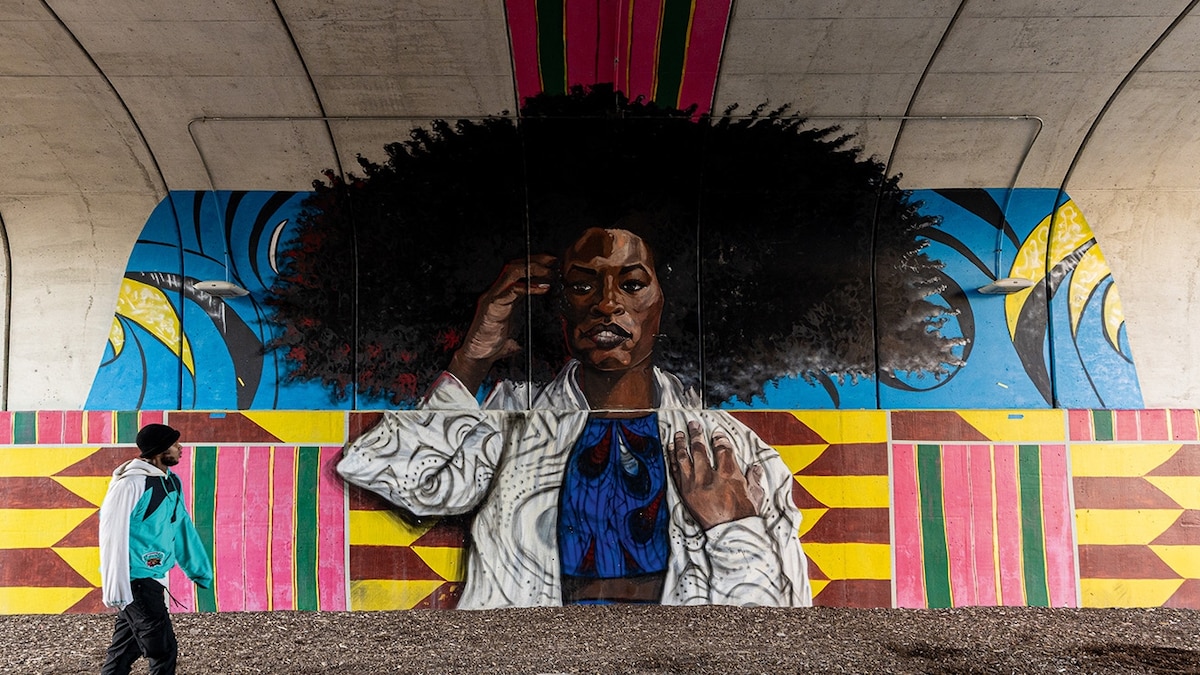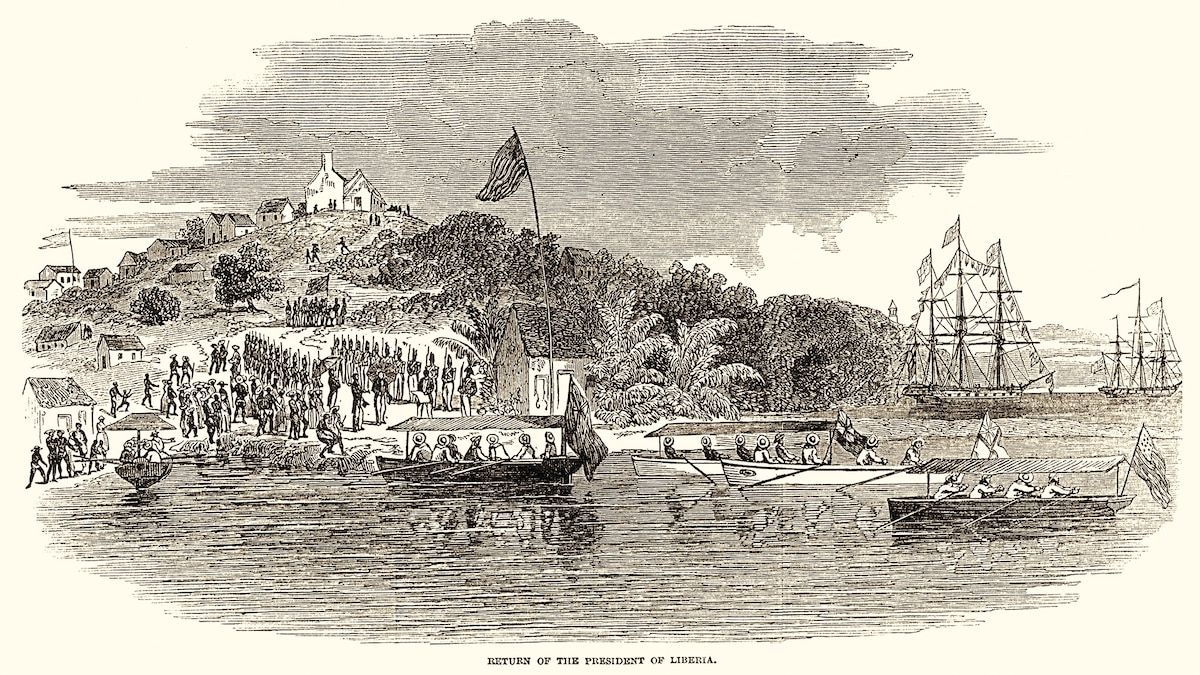Now Reading: How Detroit reinvented itself as an unlikely star of the arts
-
01
How Detroit reinvented itself as an unlikely star of the arts
How Detroit reinvented itself as an unlikely star of the arts

This article was produced by National Geographic Traveller (UK).
Detroit’s story is often told in three acts. First came its rise. Once the beating heart of America’s manufacturing industry, it was Motor City’s assembly lines — the first of their kind in the world — that set the wheels in motion for an automotive revolution that brought motoring to the masses. Jobs and prosperity followed and by the 1950s, Detroit was among the richest cities in the world, its skyline stacked with art deco icons like the Guardian Building, which acted as beacons of industry.
Next, act two: the fall. In the second half of the 20th century, automation in manufacturing and the outsourcing of production to cheaper locations ushered in widespread factory closures and layoffs. White flight to the suburbs, coupled with growing unrest among Detroit’s African Americans — a group who had long suffered discrimination in housing and employment — left a segregated and struggling city. By 2013, years of poor financial management led to Detroit filing for the largest municipal bankruptcy in US history. The city became synonymous with urban decay, crime and the collapse of the American dream.
And now, the third act: the renaissance. New investment has rejuvenated Detroit’s once hollowed-out neighbourhoods; in the central Corktown area, red-brick row (terraced) houses now sit alongside trendy coffee shops and international restaurants, and previously boarded-up buildings like the Michigan Central Station — once the poster child of the city’s ruin — have enjoyed a $1bn facelift. So too has the Detroit Riverfront, a former industrial site with new parks and cycle lanes. Last year, for the first time since 1957, Detroit’s population began to rise.

For the first time since 1957, Detroit’s population is on the rise. The city’s creative energy is finally enjoying the financial backing of major corporations, philanthropic foundations and grassroots initiatives, all fostering inclusive growth in a city where nearly 80% of the population are African American.
Photograph by Ryan Scott
While its modern history is a tale of three acts, the city can attribute much of its success to its people — the Detroiters who have persevered even when the odds have been stacked against them. Fuelled by an enterprising spirit born from recent adversity, many have found new ways to inject life into their communities and cultural arenas. In Midtown, where the rhythms of jazz bars carry into the streets, a flourishing arts scene spills out of celebrated galleries like the Detroit Institute of Arts, while crumbling industrial corridors have been transformed into art-filled alleyways. The city’s creative energy is finally enjoying the financial backing of major corporations, philanthropic foundations and grassroots initiatives, all fostering inclusive growth in a city where nearly 80% of the population are African American.
Along with investment in the arts, there’s been a bevy of new businesses, bars and restaurants opened by chefs of colour with a licence to do what Detroiters do best: rip up the rulebook. Because through boom and bust and back, one thing has always been a constant: Motor City’s engine of innovation has never stopped running.

DJ Problematic Black Hottie brings rhythm and life to the Rivera Court at a Detroit Institute of Arts music night, where guests dance amidst artwork by greats like Rodin, Matisse, Diego Rivera and Vincent Van Gogh.
Photograph by Ryan Scott
What to see and do
The Motown Museum: In 1959, Berry Gordy Jr gifted the world with Motown, which birthed an entirely new music style defined by upbeat rhythm and blues. Named after Detroit’s ‘Motor Town’ moniker, the visionary record label was housed in a building that’s now home to the Motown Museum. Don’t miss Studio A, where many timeless tracks were recorded from artists like The Supremes and Stevie Wonder.
The Detroit Institute of Arts: Rodin’s The Thinker strikes a contemplative pose at the foot of the Detroit Institute of Arts’ magnificent Beaux-Arts building. Inside, you’ll find masterpieces from Monet, Matisse and contemporary African American artists, yet compared with some of the US’s other celebrated galleries, the DIA is practically crowd-free. That means no jostling for a view of a Van Gogh self-portrait or Diego Rivera’s powerful Detroit Industry Murals.
Cycle the City: A guided tour with Wheelhouse Detroit begins on the Detroit Riverfront, a once-industrial site now transformed into four miles of scenic promenades, pathways and parks. The trip then winds through some of the city’s historic neighbourhoods. Expect a no-nonsense take on the redevelopment versus gentrification debate from proud Detroiter Kelli Kavanaugh, Wheelhouse’s owner and dedicated tour guide, as she steers you through the cycle of urban change unfolding in her city.
The Ford Piquette Avenue Plant: It was at this brick-and-timber factory that American industrialist Henry Ford initially assembled the iconic Model T, the world’s first affordable car, which revolutionised the automotive industry. Now a charming museum, the Ford Piquette Avenue Plant has a rich collection of historic cars over three floors, brought to life by a passionate team of volunteers.
The Henry Ford: This sprawling complex houses the Henry Ford Museum of American Innovation, whose interactive science exhibit explores how technological advancements have shaped American society. Next door is Greenfield Village, an 80-acre outdoor museum where Model Ts and Penny Farthings roll past replicas of the Wright brothers’ workshop and Edison’s lightbulb laboratory. And finally, there’s the Ford Rogue Factory Tour with a real-life vehicle assembly line.

Third Man Records has its own vinyl-pressing facility founded by Detroiter Jack White of The White Stripes.
Photograph by Ryan Scott

Detroiters Nathan Peck and Kristen Calverley have perfected the art of Detroit-style pizza at their Corktown restaurant Michigan & Trumbull.
Photograph by Ryan Scott
Where to go shopping
Rebel Nell: What to do with the by-products from the construction projects sweeping through Detroit? That was the question Amy Peterson asked herself when faced with paint scraps from fallen graffiti — which she repurposes into jewellery under Rebel Nell, a fashion and art social enterprise that provides opportunities for local women facing barriers to employment.
West Canfield Street: Three Detroit brands sit side by side on this street in the Cass Corridor district. Next door to Shinola’s flagship store, known for luxury timepieces and leather goods, is Carhartt, whose overalls have kitted out Detroit’s railway workers for over 100 years. Third Man Records has its own vinyl-pressing facility founded by Detroiter Jack White of The White Stripes.
Avenue of Fashion: A resurgence of Black-owned businesses has transformed the city’s historic Avenue of Fashion district. Don’t miss Krispy Addicts, a Detroit clothing boutique, and Good Cakes and Bakes, which lives up to its name with treats like peach cobbler cookies.
Like a local
Friday Night Live! at the DIA: The Detroit Institute of Arts hosts its own night at the museum on Fridays, with exciting live music performances from special guests as varied as Afrobeat orchestras and Norwegian jazz trios. Stroll through the galleries with a glass of wine in hand for the perfect blend of art and ambience.
Pizza, Detroit-Style: Everybody knows about Chicago-style pizza, but Detroit has its own square-shaped take on deep-pan pizza that locals swear by. Detroiters Nathan Peck and Kristen Calverley have perfected the art of Detroit-style pizza at their Corktown restaurant Michigan & Trumbull, which opened in 2020 with the financial support of a local business development programme.
Eastern Market: On Saturdays, the US’s largest outdoor farmers’ market pulses with energy as local vendors flog fresh produce, artisanal foods and handmade crafts from their colourful stalls. Eastern Market is a major hub for the Michigan food industry, but it’s always served the local community, too; Detroiters have been stopping by to pick up their groceries since 1891.

Selden Standard’s bar manager Andrew Zerbo pours bourbon for a guest. When hunger strikes, this nationally acclaimed restaurant serves small plates using ingredients from local farmers.
Photograph by Ryan Scott

Quality craftsmanship abounds at the Shinola Hotel, from the custom-made mohair sofas to vibrant artworks like the shimmering sequinned wall piece in the lobby-adjacent Living Room bar.
Photograph by Ryan Scott
Where to eat in Detroit
Detroit 75 Kitchen: Brothers Mike and Ahmad Nassar needed to give drivers a reason to call in at their family-owned truck stop in a quiet southwestern corner of the city. Their answer? To feed them arguably the best sandwiches in town. Drawing on their Lebanese mother’s cooking traditions, the brothers serve award-winning cheesesteaks, po’boys and shawarma wraps that keep locals and visitors coming back in their droves.
Cliff Bells: Restored to its art deco glory in 2006, replete with brass-trimmed mahogany and green-velvet walls, Cliff Bells isn’t just Detroit’s number one jazz bar — it’s also a destination for elevated dining. Expertly crafted dishes like seared scallops and lobster macaroni are served here alongside nightly live music performances.
Selden Standard: This nationally acclaimed restaurant uses ingredients from local farmers for its small plates. The seasonal menu can include beetroot elotes (a Mexican street-food staple, traditionally featuring corn on the cob) and grilled Michigan country rib with kohlrabi, apple and coriander vinaigrette.

‘Carl the Human jukebox’ of Carl & Company performs at Cafe D’Mongo’s Speakeasy, a beloved Detroit institution owned by local legend, Larry Mongo.
Photograph by Ryan Scott
After hours
The Vinyl Society: Before there was Motown, there was jazz and blues. Throughout the early 20th century, nightclubs in Detroit’s Paradise Valley district echoed with the rhythms of musicians like Ella Fitzgerald and Duke Ellington. The Vinyl Society is a Black-owned bar and lounge that pays homage to the heyday of Paradise Valley with live music and a creative craft cocktail menu.
The Belt: Detroit-based art gallery Library Street Collective transformed this service alley in a former downtown garment district into a vibrant art space home to several fun bars whose seated areas spill out into the street. The Skip’s open-air cocktail bar is a lively place to drink in the colourful murals; Standby has more of a speakeasy feel.
Cafe D’Mongo’s Speakeasy: Old-school jazz and stirring soul music shake the walls of this cosy nightclub, adorned with a jumble of vintage instruments and photographs that serve as a scrapbook of Detroit’s rich musical history. Pop in on any given evening and don’t be surprised to see owner and local legend Larry Mongo himself, now in his mid-70s, holding court with all the charm that’s made his bar a beloved Detroit institution.
Published in the June 2025 issue of National Geographic Traveller (UK).
To subscribe to National Geographic Traveller (UK) magazine click here. (Available in select countries only).























